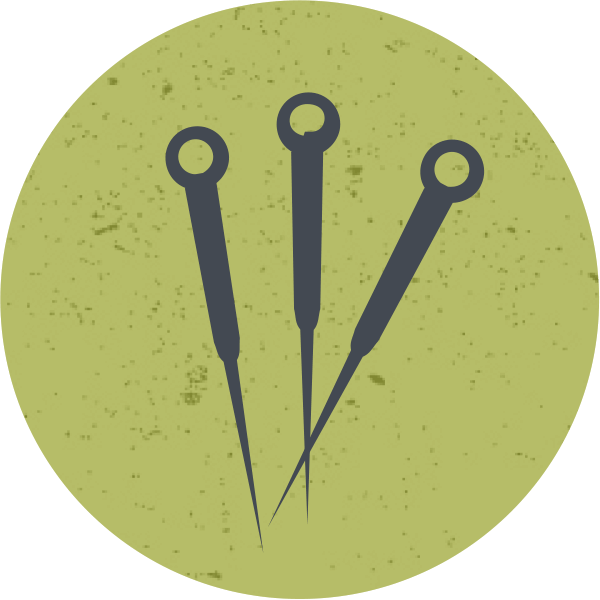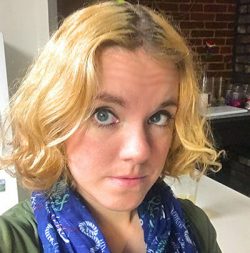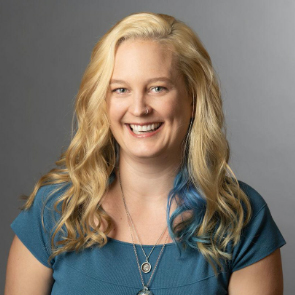Quick Links
What You Need to Know About Becoming an Acupuncturist
Acupuncturists use ancient techniques and theories along with modern scientific research to provide patient care.

Acupuncture is the ancient theory and practice of aligning the human body’s qi, or energy flow, through a series of more than 2,000 acupuncture points in the body. According to traditional theory, when this energy flow is interrupted it can lead to illness and pain. Correct acupuncture technique is thought to improve that flow and a person’s health along with it.
“The practice of acupuncture involves using energy channels in the body called meridians to help change physical and physiologic processes in the body,” says Jennifer Bennett, ND, LAc, an acupuncturist and naturopathic doctor practicing in Seattle. “Most acupuncture visits involve needles to help manipulate energy, or qi, in these channels.”
Acupuncture has been practiced for thousands of years. The practice is generally believed to have originated in China. References to it can be found in ancient Chinese documents dating back to at least 100 BCE, and many historians believe acupuncture practice might be much older than that. By around 600 AD, the practice had spread to Korea, and by around 800 AD it was commonly found in Japan and Thailand as well. By the 1600s, acupuncture had spread to parts of Europe, and by the 1800s it could be found all over the world, including in America.
Today, acupuncture is commonly found in China, Australia, many European countries, and the U.S., where it’s practiced in clinics, wellness centers, and integrative medical centers to treat a variety of conditions. New research is being done to document and study acupuncture’s effectiveness in treating multiple health conditions.
What Does a Job as an Acupuncturist Look Like?

Acupuncture involves the precise placement of sterile needles about as thin as strands of hair into the body’s acupuncture points, which are known as meridians. When applied correctly, the needles can relieve pain and illness. Needles placed incorrectly can cause pain, discomfort, and a worsening of symptoms
However, you won’t just be inserting needles as an acupuncturist. First, you’ll need to meet with your patients, examine them, and talk about their health history and current symptoms. The exam will consist of many of the elements of a Western medicine-style healthcare exam but also include assessments for insights into the patient’s overall health.
“When people go in for acupuncture treatment, they (address the patient’s) chief complaint thoroughly,” explains Bennett. “The acupuncturist will feel their pulse and look at their tongue, which helps the acupuncturist understand what imbalances are occurring in the body.”
You’ll then be able to come up with a treatment plan. This plan will include the meridians that need to be treated and the number of treatments a patient will need. You might also stimulate the meridians with other therapeutic techniques including:
- Pressure
- Heat
- Suction
- Friction
- Electromagnetic impulses
You might practice in your own clinic, as part of a larger wellness clinic, or even in a hospital that embraces integrative and complementary medicine. Often when you work in an integrative setting, you’ll be part of a team treating a patient’s condition. You might meet with other healthcare professionals to discuss treatment and care for the patients you see.
Why Acupuncture?
- People come to acupuncturists for a variety of reasons. Chronic pain, especially back and neck pain, is a common reason, but it’s far from the only one. Another common reason people seek acupuncture is for help coping with the side effects of chemotherapy during cancer treatment. People also seek acupuncture for infertility, digestive issues, autoimmune conditions, and more.
- In general, people see an acupuncturist when they want to try something beyond a Western medicine-based approach, or when they want a treatment that’s less invasive than surgery or medication. In some cases, patients might have been referred by their primary care provider or another health professional.
- Other patients might seek your services after hearing about how a friend or family member had favorable results using acupuncture. No matter the reason, people who seek acupuncture are looking for health and healing from a caring professional.
What Kind of Education Do I Need?
Acupuncture degree programs are always at least master’s level programs. Doctoral programs are also available. In either case, that means you’ll need a bachelor’s degree or higher before you enroll, although some schools will allow you to earn a bachelor’s degree alongside your master’s degree.
It often doesn’t matter what your bachelor’s degree is in, but it can help if you’ve studied healthcare or the body in some way. A school will also look at your grade point average from your undergraduate studies, and since programs can be competitive, it helps to have a high GPA.
You’ll learn acupuncture as part of a Traditional Chinese Medicine (TCM) curriculum. Some schools will have a broad focus, and you’ll learn herbology and other TCM fundamentals. Others will focus more strongly on acupuncture theory and practice. Either way, you’ll need to attend a program that’s accredited by the Accreditation Commission for Acupuncture and Herbal Medicine if you want to become licensed.
How Long Does It Take?
Program lengths vary, and it matters whether you want to earn a master’s or a doctoral degree.
Program Type
Average Length
Master of Acupuncture
Three years
Master of Oriental Medicine
Four years
Master of Acupuncture
with Chinese Herbology specialty
Four years
Doctor of Acupuncture
About six years
(two years on top of master’s)
What About Licensing and Certification?

Most states require acupuncturists to be licensed. Even if your state doesn’t, you’ll need to be licensed to receive insurance reimbursement. Some employers also might require licensing even if it’s not required by the state.
In almost all states, you’ll need to take the National Certification Commission for Acupuncture and Oriental Medicine (NCCAOM) exam and earn its certification to be licensed.
To take the exam you’ll need to:
- Complete your education
- Apply with NCCAOM
- Submit your final transcripts
- Take and pass an approved Clean Needle Technique (CNT) course
Once you submit proof of your degree and successfully complete the CNT course, you’ll be approved to take the exam. You’ll need to pass the exam before you can become certified. In most states, you’ll need to submit proof of your education and NCCAOM certification before you’ll be issued a license.
Why Is Accreditation Important?
Acupuncture programs are accredited by the Accreditation Commission for Acupuncture and Herbal Medicine. You must attend an ACAOM-accredited program before you can take the NCCAOM exam for certification. And in most states, you need certification to earn licensure.
You might be able to open a clinic without a license, but it might be harder to draw in patients if you’re competing with other acupuncturists in your area who are licensed. Additionally, you won’t be able to accept insurance payments if you’re not licensed. That means patients who want to use their insurance to cover acupuncture treatment costs are likely to look elsewhere, which could hurt your business.
How Much Does an Acupuncturist Earn?
The 2022 U.S. Bureau of Labor Statistics (BLS) data shows that the median salary for acupuncturists is $78,220. Your salary depends on several factors, including where you work and your experience. Salaries are based on national data, not school-specific information. Conditions in your area may vary.
Since many acupuncturists own private clinics, your salary also depends on the success of your clinic. You’ll need to factor in costs like rent and utilities if you run your own clinic and make sure you’re earning enough to balance out those bills.
For acupuncturists employed by others, the setting can make a large difference in salary. For example, since 2020, acupuncturists have been hired as healthcare providers in federal roles, such as working for Veterans Administration outpatient care facilities. Acupuncturists hired in outpatient care centers earned impressive salaries according to the BLS. By contrast, acupuncturists employed in the offices of other healthcare providers earned considerable less.
Is Acupuncture Right for Me?
Acupuncture is a growing career field with a lot of opportunities. As an acupuncturist, you’ll help patients get relief from pain and other symptoms. You’ll be able to use your skills to help people who prefer an alternative approach to Western medical modalities. If you’ve always been interested in the healthcare field but haven’t been sure a more traditional medical, nursing, or other health degree was for you, acupuncture might be a great fit.
Other than a passion for healthcare, what else makes someone a good fit for an acupuncture career? According to Bennett, you’ll need a few things.
“The ability to have compassion for your patients and what they are going through, to be able to critically think through difficult cases, and to have patience when treatments do not work as well as intended,” she says.

Written and Reported by:
Stephanie Behring
Contributing Writer

With professional insight from:
Jennifer Bennett, ND, LAc
Naturopath and Professor, Bastyr University
